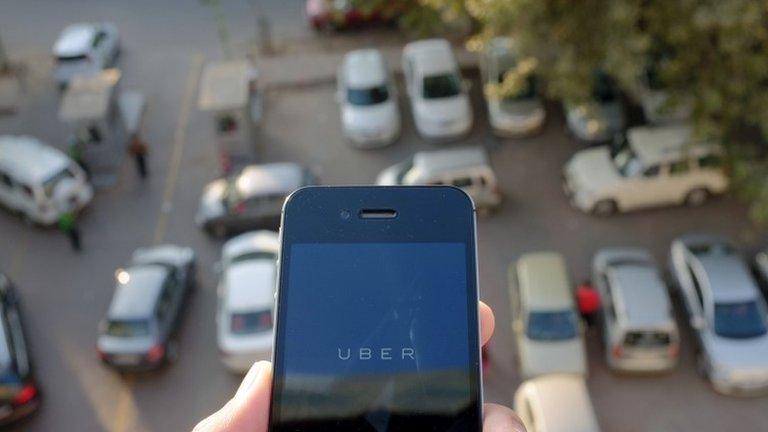France cracks down on Uber service after protests
- Published
Tyres were set alight and flares fired at protests in Paris
France's interior minister has ordered a ban on the low-cost car-sharing service UberPOP after a day of nationwide protests by taxi drivers.
Bernard Cazeneuve said the service was "illegal" and ordered police and prosecutors to enforce its closure.
His announcement followed a day of sometimes violent protests by French taxi drivers, who say the US-based firm Uber is stealing their livelihoods.
US rock singer Courtney Love Cobain was caught up in the unrest.
She tweeted her frustration, saying her taxi had been ambushed as she left the airport.
The musician shared an image of the window, external of her car spattered with egg, and thanking two motorcyclists, external she said rescued her.
Windows smashed
Uber officials have insisted they will continue their activities until France's highest court rules on the service - an attitude Mr Cazeneuve called "cynical and arrogant".
Key highways around Paris were blocked and tyres were burned during the day-long strike. Barriers also appeared around Marseille and Aix-en-Provence in southeast France.
Some cars were overturned and others had their windows smashed with bats.
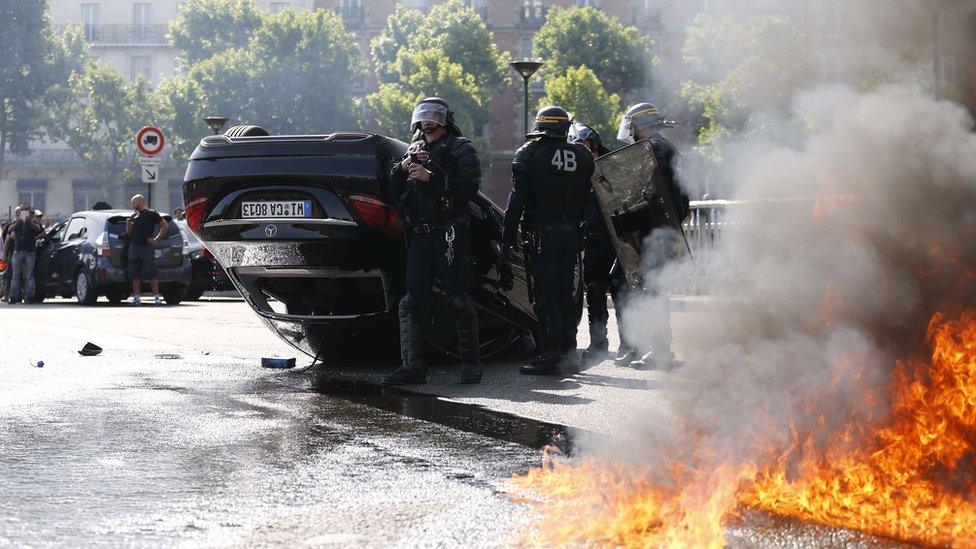
Riot police responded to protests in Paris after French taxi drivers overturned cars and set fire to tyres in protest against taxi app Uber
Aeroports de Paris, the operator of the French capital's Charles de Gaulle (CDG) and Orly airports, warned passengers to travel by train, saying "access by road is completely blocked".
Some travellers walked along the side of the motorway to reach the airport.
Taxi drivers also blocked access to Marseille and Aix train stations and protested on the main access to Marseilles-Provence airport.
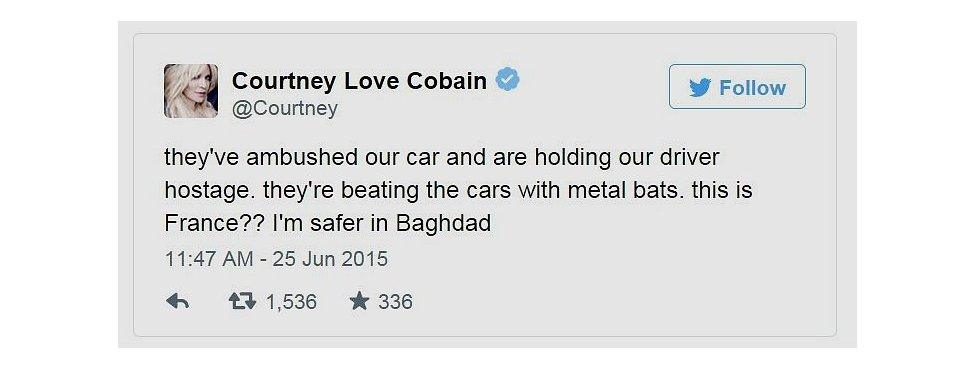
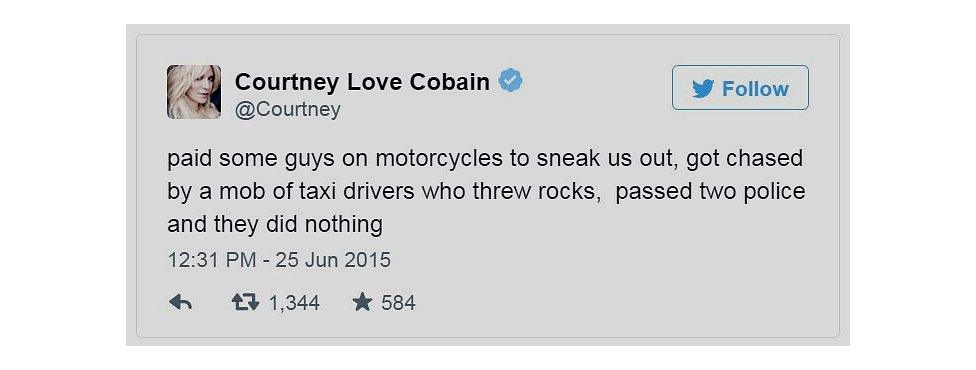
France's taxi drivers - who have to pay thousands of euros for a licence - say they are being unfairly undercut by UberPOP.
"Many taxis drivers are infuriated," Abdelkader Morghad, a representative of the FTI taxi union, told Bloomberg.
He said a law that forbids unlicensed drivers to carry paying passengers should be implemented.
France's licensed drivers have lost between 30% and 40% of their income over two years because of the growth of UberPOP, Mr Morghad said.
UberPOP is a car-sharing service offered by Uber, which brings together customers and private drivers at prices lower than those charged by both traditional taxi firms and even other Uber services.
UberPOP differs because it allows non-professional drivers to register their car and transport other passengers.
It has been illegal in France since January, but the law has proved difficult to enforce and the service continues to operate, AFP news agency reports.
Mr Cazeneuve said on Thursday that he had ordered police in Paris to issue a decree banning UberPOP and said any cars defying the order would be seized.
Uber spokesman Thomas Meister said the firm had contested the law under which UberPOP has been ruled illegal, and accused the interior minister of overriding the normal legal process.
"The way things work in a state of law is that it's for the justice to judge whether something is legal or illegal," he was quoted by Reuters news agency as saying.
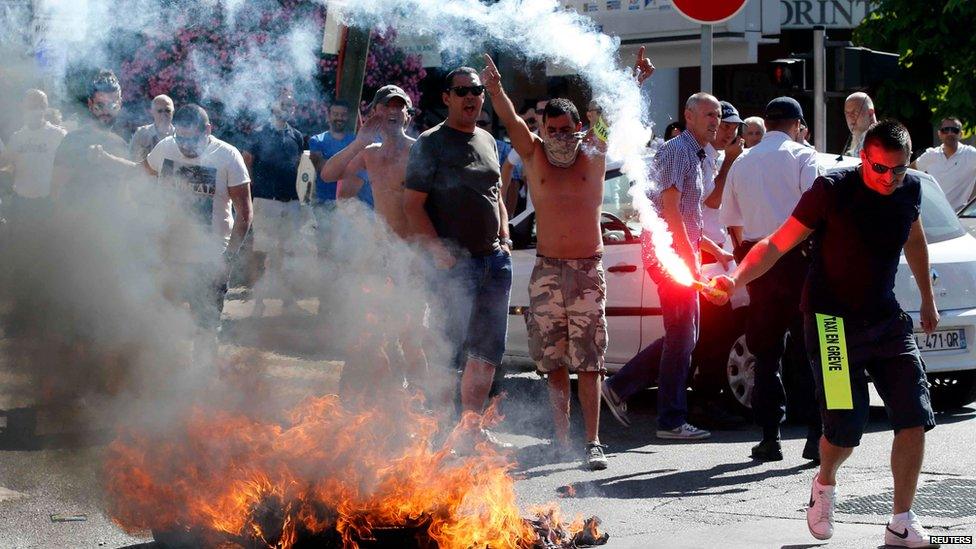
The nationwide protests saw violence in Marseille as well as Paris
San Francisco-based Uber says it has a million users in France, including 250,000 for UberPOP. Uber also operates a luxury service which is not banned.
Uber has faced similar teething problems in cities all over the world, with traditional taxi drivers protesting against being undercut by the unlicensed company.
But licensed taxi drivers have been criticised for being slow to adopt the app-based geolocation technology behind Uber's success.
- Published11 June 2015
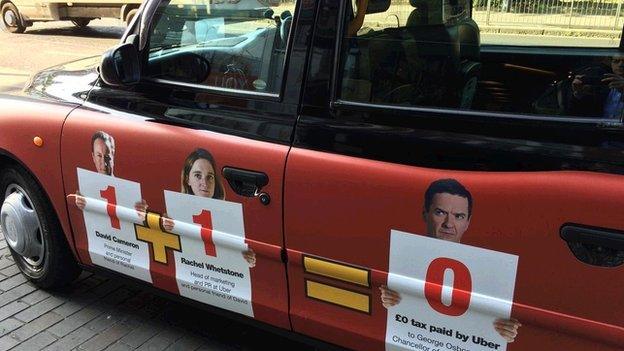
- Published15 May 2015
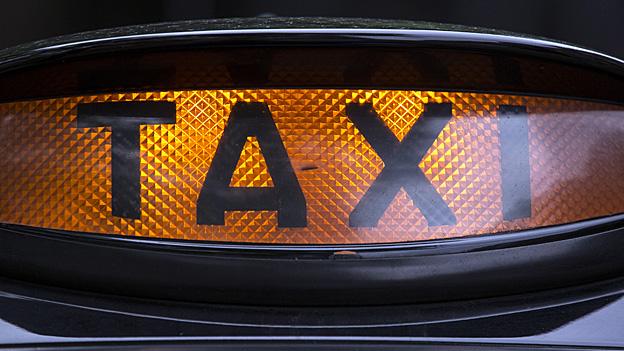
- Published22 May 2015
- Published10 December 2014
